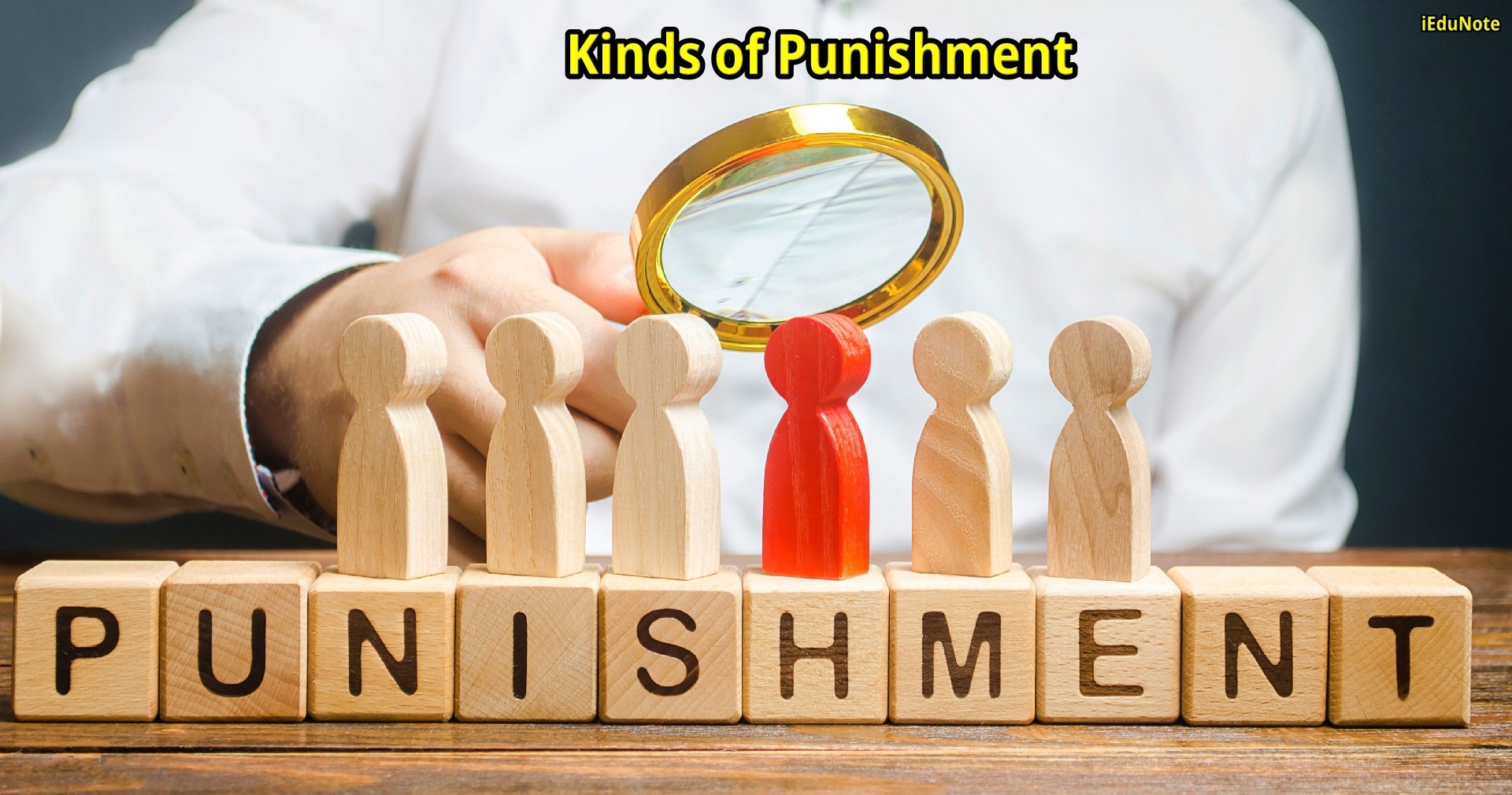Almost all human societies have confronted the problem of crime, delinquency, and deviance. They are continuously searching for the etiology of crime, which may be broadly classified as biological, psychological, or sociological.
The inquisitiveness of the human mind to find out the causes of crime and its control has given rise to the emergence of criminology—a fascinating discipline that intertwines various discourses, reflecting the reality of understanding human nature with all available branches of knowledge.
Understand Criminology.
Theoretical Perspectives in Criminology
Criminological theories, a combination of spiritual and natural approaches, have tried to identify the possible processes through which an individual becomes a criminal.
However, completely eliminating crime becomes a myth; instead, social policy aims to reduce its frequency. The possibility of crimes caused by external factors, like economic or social issues, may disappear with the elimination of those factors.
But when people commit crimes due to factors beyond human control, such as biological or psychological factors, delinquency becomes normal as if it were an inevitable attribute of human nature.
Even in a society of saints, a minor mistake will cause the same scandal as a crime does. There, crime will be normal due to collective conscience, dissenting opinions, and diverging attitudes.
Criminology as a Discipline
Criminology is a well-documented field of study, with many scholars contributing to its development through distinguished textbooks.
These texts discuss criminological theories, the extent and distribution of crimes in a society, the features of criminal law and procedure, the characteristics of criminals, the characteristics of society and the state, and the history, structure, and functioning of the criminal justice system.
Evolution of Criminological Thought
Criminological discourse has reflected the religious, philosophical, political, economic, social, and scientific trends of a given time, especially in terms of theories of crime.
For many years, criminological study did not consider crime victims as an important topic, but the current trend of criminology focuses on victims and victimization, which is necessary to understand the nature of crime.
The study of crime and criminology is very complex but fascinating. It requires a clear understanding of crime, criminal law, and criminology, with a greater interest in explaining criminal behavior.
The Aim of Modern Criminology
Criminology is an empirical science whose preoccupation is to find out the causes of crime and its control. Modern criminology seeks to understand both crime and society’s reaction to it.
Criminology has developed out of a desire to discover the natural laws on which society has grown and to provide a sound program for establishing social peace.
Origin and Definition of Criminology.
Raffaele Garofalo, the Italian law professor, was the first to coin the term “criminology” in 1885. In Italian, it is called “criminologia.” In 1887, Paul Topinard, a French anthropologist, used it in French. Criminology has been of scientific interest for only two centuries.
Two schools of thought, classical and positive approaches, have contributed to the development of modern criminology. Emerging in the eighteenth century, the classical school focuses on crime, while the positive school has its origin in the nineteenth and early twentieth centuries and studies criminals.
Defining Criminology: Legal vs. Non-Legal Aspects
Criminology is the scientific study of the non-legal aspects of crime. In its wider sense, embracing penology, it is the study of the causation, correction, and prevention of crime. In some countries (e.g., the United States, Belgium, Austria), its scope is broadened to include so-called criminalistics, the science and practice of criminal investigation.
This definition indicates that there are legal and non-legal aspects of crime. Legal aspects pertain to defining crime by substantive law, enforcing the rights of the victims, and punishing the offenders per procedural law provisions.
Non-legal aspects of crime are concerned with studying crime from various aspects other than legal. This definition is not tenable, as it has narrowed down the scope of criminology, which extends its scientific inquiry to both the legal and non-legal aspects of crime.
Criminology as an Interdisciplinary Field
In the United States, Criminology is largely thought of as a branch of sociology, although the development of new schools of criminal justice at some universities indicates a tendency to conceive of this science as an interdisciplinary one, involving teams of specialists in psychology, sociology, political science, and public administration.
Criminology According to Edwin H. Sutherland
In 1934, Edwin H. Sutherland provided a definition of criminology, which is widely accepted:
Criminology is the body of knowledge regarding crime as a social phenomenon. It includes within its scope the process of making laws, breaking laws, and reacting toward the breaking of law.
The objective of criminology is the development of a body of general and verified principles and other types of knowledge regarding this process of law, crime, and treatment or prevention.
The Evolving Discipline of Criminology
Today, criminology has emerged as a major social and behavioral science.
Though there is disagreement among criminologists about a proper definition, criminology is a discipline that concentrates on forms of crime, causes and definitions of crime, social reactions to criminal activity, and the study of victims.
Applied criminology deals with the criminal justice system: the police, the courts, and corrections. Adler, Mueller, and Laufer consider criminology as the scientific study of the making of laws, breaking of laws, and society’s reaction to the breaking of laws. Sue Titus Reid has correctly commented that:
Historically, the primary focus of criminology has been on attempts to explain the behavior of criminals. The causes of crime are explored through discussions of biological, psychological, economic, and sociological theories.
But the modern study of crime involves more than an attempt to understand why people violate the law. The discipline of criminology includes the sociology of law, which analyzes why some acts and not others are defined as crimes, and a study of the social responses to crime, which examines why some people are processed through the system while others who commit the same acts are not.
These areas of focus are not always separable. There is considerable overlap.
Is Criminology Science?
There has been debate about whether criminology is a science or not. Some argue that criminology cannot possibly become a science. Science presupposes general propositions of universal validity, which can only be made for stable and homogeneous units. Crime varies from time to time and place to place and lacks a homogeneous character.
Universal propositions, therefore, cannot be made for any matter relating to crime, and that’s why some consider scientific studies of criminal behavior impossible.
Redefining Crime for Scientific Study
It is possible to select areas and types of crimes where definitions are uniform. But the above argument has neglected this possibility. Criminologists can redefine crime for the purpose of criminological study by selecting criminal cases.
But the difficulties arising from the legal definition of crime cannot be denied. Sellin implicitly acknowledges the validity of the criticism, and he stepped up to redefine crime as a violation of any conduct norm whatsoever.
He argued that unless arbitrary definitions of legislatures are replaced by scientific definitions, a concrete foundation for a science of criminology cannot be established.
The Challenge of Group Evaluation in Criminology
In no circumstance can the evaluation of behavior by groups be escaped, even if scientific definitions are made. Any behavior can be called courageous in one situation and can be considered cowardly in another. That is the characteristic problem of human behavior.
In fact, “Physiologically, acts can be defined apart from group evaluations; sociologically, they cannot be.” Crime, in this respect, is like all other social phenomena.
The possibility of a science of criminal behavior merits as much potentiality as lies with the possibility of a science of any other behavior. As social science cannot avoid group evaluation, it is not a stable unit. Later on, the methodological problem is solved by redefining crime as a violation of any conduct norm.
Beyond Legal Definitions: Expanding the Horizon of Criminology
For the purposes of control, a universal explanation of crime may not be valuable. The significant explanations will possibly relate to particular types of crime, and each class can be defined in terms of universal elements.
Criminologists should not be confined within the horizon of legal definition; they should overstep the legal frontier when they see non-criminal behavior resembling criminal behavior.
Admitting the merit of the above criticism, some students have abandoned their endeavor to develop criminology as a science. They have made the sequence of lawmaking, lawbreaking, and reactions to lawbreaking as a subject of their study.
Here, the objective of criminology is to measure the efficiency of law as a machinery of social control.
Nature and Scope of Criminology
Criminology, in its narrower sense, studies forms and extents of crimes and the factors responsible for criminality. In its wider sense, criminology includes methods of punishment, prevention and correction of criminals, and the study of victimology.
Penology, prevention, and correction may be brought within the horizon of criminology if scientific studies, analysis, experiments, and interpretations are employed in these areas.
Distinguishing Criminology from Public Administration
Criminology does not include pure issues of practice and administration relating to penology and correction, like social work activities of probation and parole officers and administrative functions of the police and the prison officials, but they are properly the subjects pertaining to public administration.
When scientific studies and research are conducted in the field of penology, prevention, and correction to establish better social control, it has become a fit for criminology.
Criminology’s Role in the Global Context
In the recently developed global context, criminology has taken a very dynamic role, as it enables criminologists to study crimes that are likely to threaten the environment and world peace.
Criminologists have a great interest in finding out the causes and suggesting ways of preventing genocide, wars of aggression, crimes against humanity, and war crimes. They have great concern for civil war, crimes related to ethnicity, and natural disasters.
Addressing International Terrorism through Criminology
In the threshold of the twenty-first century, international terrorism and state-sponsored terrorism make criminologists aware of the volatile global situation.
Now, criminology has a wide jurisdiction to study crime in its international context.

